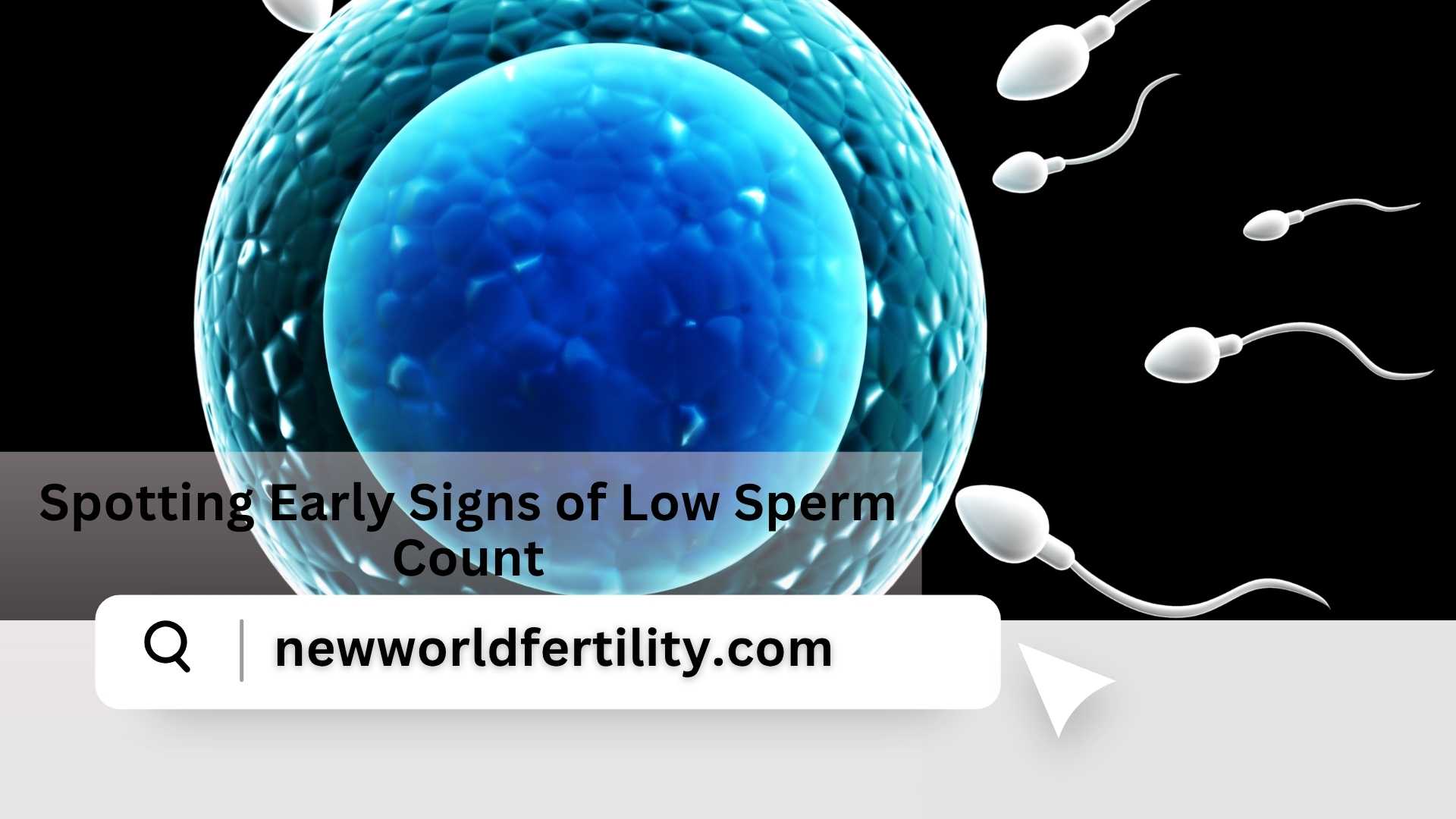Infertility is a growing concern worldwide, and understanding its causes can help couples seeking to grow their families. For men, low sperm count is one of the most common reasons for fertility challenges. According to the World Health Organization (WHO), normal sperm concentration should be at least 15 million sperm per milliliter of semen. When the count falls below this threshold, it is termed oligospermia or low sperm count.
Low sperm count can be silent, but recognizing early symptoms is vital for timely intervention. In this blog, we’ll explore the signs of low sperm count, its causes, and steps you can take to improve sperm health.
What is Low Sperm Count?
Low sperm count refers to a semen analysis result indicating fewer sperm than needed for optimal fertility. Though it doesn’t always mean infertility, it can reduce the chances of conception.
Early Symptoms to Watch For
Recognizing the symptoms early can make a significant difference in addressing low sperm count effectively. Here are the most common signs to look out for:
1. Difficulty Conceiving
One of the earliest signs of low sperm count is difficulty conceiving despite regular unprotected intercourse over a year. While many factors contribute to infertility, male infertility accounts for about 40–50% of cases.
2. Changes in Sexual Function
A low sperm count may accompany hormonal imbalances. Symptoms include:
Reduced libido or sex drive
Difficulty maintaining erections (erectile dysfunction)
Delayed ejaculation
3. Pain or Swelling in the Testicles
Discomfort, swelling, or pain in one or both testicles could indicate an underlying issue like a varicocele, infection, or injury affecting sperm production.
4. Decreased Facial or Body Hair
Hormonal issues linked to low testosterone levels can lead to reduced body or facial hair growth. This hormonal imbalance can also affect sperm production.
5. Abnormal Semen Appearance
Though not always noticeable, some men might observe changes in semen, such as a watery appearance, reduced volume, or unusual texture, which can indicate a problem with sperm production.
6. Hormonal Imbalance Symptoms
These may include:
Fatigue
Weight gain, especially around the abdomen
Mood swings or depression
Causes of Low Sperm Count
Low sperm count can result from various factors, including:
Lifestyle Factors
Excessive alcohol consumption
Smoking or drug use
Stress and lack of sleep
Poor diet
Medical Conditions
Varicoceles (swollen veins in the scrotum)
Infections like epididymitis or sexually transmitted infections (STIs)
Hormonal imbalances (low testosterone levels)
Chronic illnesses like diabetes
Environmental Factors
Exposure to pesticides or heavy metals
Prolonged heat exposure to testicles (e.g., frequent sauna use)
Medications
Certain medications, including anabolic steroids, chemotherapy drugs, or some antibiotics, may affect sperm count.
Steps to Improve Sperm Health
If you or someone you know exhibits these symptoms, there are actionable steps to improve sperm count and overall fertility.
1. Adopt a Healthy Lifestyle
Quit smoking and limit alcohol intake.
Incorporate a balanced diet rich in antioxidants (fruits, vegetables, nuts).
Engage in regular exercise, but avoid excessive cycling or heavy lifting that might overheat the testicles.
2. Manage Stress
Stress can significantly impact hormonal balance. Techniques such as mindfulness, yoga, and therapy can help.
3. Avoid Environmental Toxins
Reduce exposure to harmful chemicals at work or in daily life. Wear protective gear if needed.
4. Check Your Medications
Discuss with your doctor whether your current medications may affect fertility and explore alternatives if necessary.
5. Seek Medical Advice
If lifestyle changes do not yield results, consult a fertility specialist, such as New World Fertility. Medical treatments may include:
Hormonal therapy
Surgery for varicoceles
Assisted reproductive techniques like ICSI (Intracytoplasmic Sperm Injection)
FAQs About Low Sperm Count
1. Can low sperm count be reversed?
Yes, many cases of low sperm count can be improved with lifestyle changes, medical treatment, or assisted reproductive technologies.
2. What is the normal sperm count for conception?
A sperm count above 15 million per milliliter is considered normal for conception.
3. How is low sperm count diagnosed?
A semen analysis is the standard test to diagnose low sperm count. It evaluates sperm quantity, quality, and motility.
4. Can stress cause low sperm count?
Yes, stress can disrupt hormone levels essential for sperm production, leading to a low sperm count.
5. Is low sperm count a permanent condition?
Not always. Depending on the cause, low sperm count can often be treated or managed effectively.
Why Choose New World Fertility?
At New World Fertility, we understand the emotional and physical challenges of infertility. Our experienced team offers personalized care and advanced treatments to help couples on their journey to parenthood.
If you suspect symptoms of low sperm count, don’t wait. Reach out to New World Fertility today and take the first step toward a brighter future.

 Oct-12-2025
Oct-12-2025